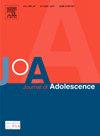Reviewing identity development in young people living with Type 1 Diabetes Mellitus
Abstract
Introduction
Type 1 Diabetes Mellitus (T1DM) is a chronic condition increasing among young people. Identity development occurs during an individual's life and can be significantly influenced by a chronic disease such as T1DM. We have critically reviewed the relevant scientific literature to understand young people's identity development with T1DM.
Methods
A critical review design was employed to answer the research question: “What does scientific literature state regarding identity development in young people living with Type 1 Diabetes Mellitus?” Numerous databases were searched to include the most relevant scientific literature to answer the research questions. Boolean operator phrases were ultimately used to search for the literature. The initial screening produced 1319 scientific literature, among which seven articles were analyzed thematically.
Results
Analysis revealed several significant themes: The identity of young people with T1DM develops differently from those without this chronic condition; young people can either incorporate or contain their T1DM in their identity development, highlighting the complex nature of this process; and numerous external factors significantly influence identity development in young people living with a chronic condition such as T1DM.
Conclusion
The study underscores that identity develops differently in young people living with T1DM than in those without chronic conditions. However, the existing studies and literature exploring the experiences of young people living with T1DM have relied on information from caregivers and health professionals. This reliance on secondary sources underscores the urgent need for more research to obtain data from young people living with T1DM as a primary source. Such a shift in research practices is crucial to gaining a more comprehensive and accurate understanding of their experiences.


 求助内容:
求助内容: 应助结果提醒方式:
应助结果提醒方式:


